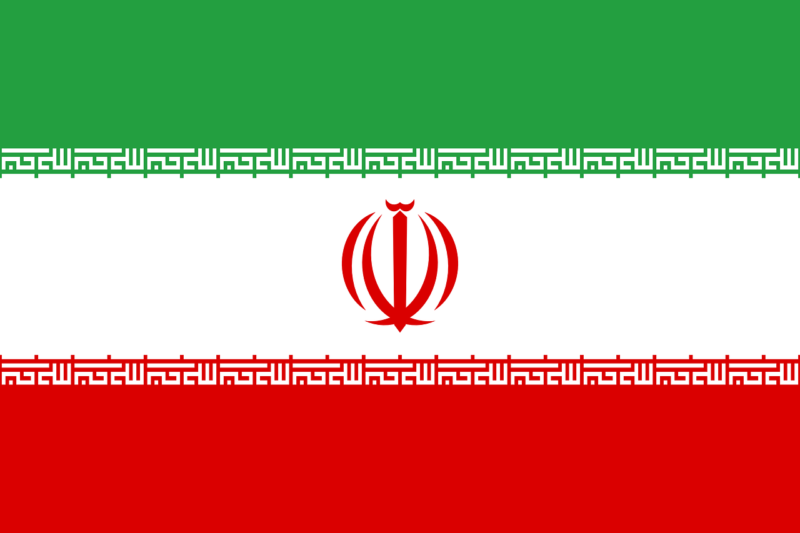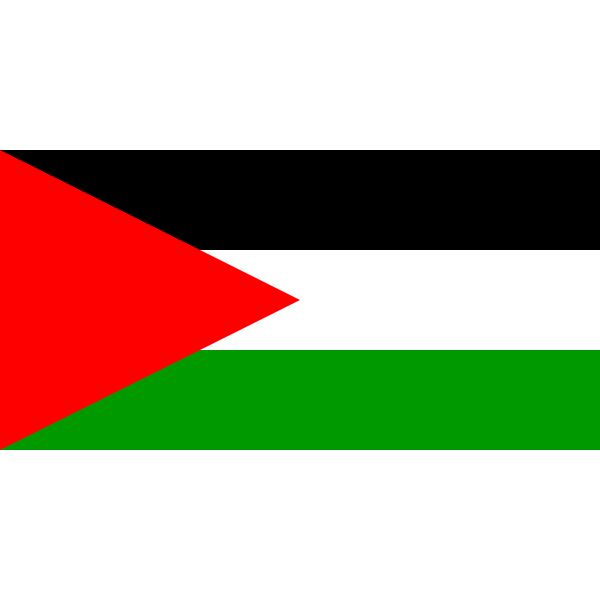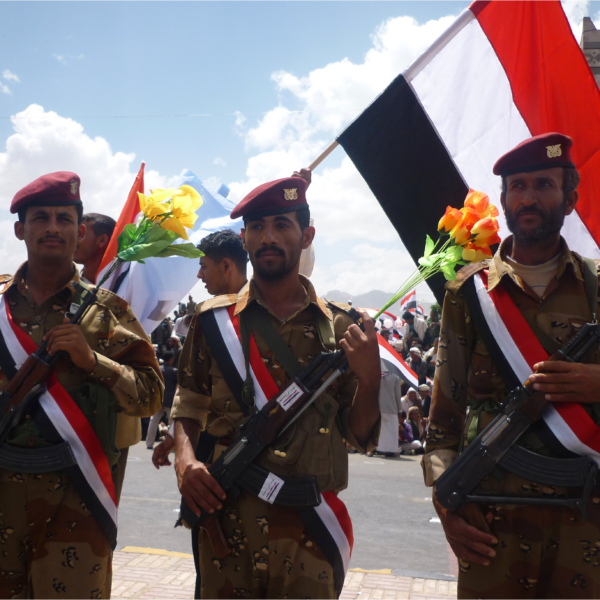The “Middle East” is a relatively recently devised and inconsistently defined term used to refer to a region centring on the Arabian Peninsula and, depending on the context, including countries as far west as Morocco and as far east as Pakistan. When extended so far the acronym MENA (Middle East and North Africa) is increasingly common, although alternative terms such as WANA (West Asia and North Africa) are occasionally preferred as a means of circumventing the problematic tendency of defining a region by virtue of its relation to a supposed global “centre” in Europe.
In some ways, however, the Eurocentric nature of the term seems apposite given the colonial legacy in the region and the framework within which “Middle Eastern politics” are generally discussed. Nation states comprising the region were variously carved from the remains of the Ottoman Empire in the wake of its collapse following the First World War (like Iraq, Jordan, Lebanon and Syria), or were countries such as Iran or Egypt which, while nominally independent, were subject to varying degrees of Western imperialist intrigue. It was only after the Second World War that the majority of countries across West Asia and North Africa would gain full independence (usually from France or Britain), as the mandate system established by the covenant of the League of Nations began to unwind and the European powers – devastated by a second major war in 30 years – could no longer afford to maintain their colonial possessions. Other national groups, such as the Kurds, continue to fight for independence today.
The region nevertheless continued to bear the scars of Western domination beyond the Second World War. Just two years after Britain withdrew its last garrison from Egypt (despite having granted the north African state’s nominal independence 32 years earlier), it conspired together with France and Israel to launch a partial occupation in response to Gamal Abdel Nasser’s nationalisation of the Suez Canal. The 1956 Suez Affair, although ultimately unsuccessful, followed on from a joint US-British venture to unseat the democratically elected Iranian Prime Minister Mohammad Mosaddegh three years earlier in response to his decision to nationalise the country’s oil fields. This coup d’état strengthened the autocratic rule of the Shah and the lingering resentment felt by ordinary Iranians eventually set in motion the series of events that would lead to the 1979 Islamic Revolution and in turn the country’s ostracization from the international community. The ongoing Saudi Arabia-Iran Proxy War is a direct result both of the consolidation of Iran’s Shia Nationalist Identity in the wake of the revolution and the strengthening of the country’s regional political clout by virtue of the destruction of Iraq in the 2003 Western invasion.
Perhaps the most significant legacy of imperial intervention in the region, however, is the continued repression of the Palestinian people and the denial of their right to independence by the Israeli state. The ongoing Israel-Palestine Conflict had its roots largely in the Balfour Declaration of 1917, in which the British government promised to facilitate the establishment of a “Jewish National Home” in Palestine – despite the fact that Britain at the time had no presence in Palestine and its population was overwhelmingly non-Jewish. Following its capture from the Ottomans by the end of the war, the League of Nations granted the area to the British under its new Mandate System and the extensive immigration of mostly European Jews with a view to the development of the land was overseen by the British administration in the inter-war years. The concomitant dispossession of the Palestinian Arab fellaheen and cultural clashes between the nascent national groups led inexorably to war following Britain’s departure, and the subsequent land-grabbing policies and ethnic segregation imposed by the Israeli state have ensured that the conflict continues to simmer and that resentment towards Israel and its Western backers remains across the region.
Although this resentment remains widespread at a popular level, states across the region have gradually been normalising ties with Israel. Egypt became the first to do so in 1980 following the Camp David Accords, with Jordan doing the same fourteen years later. This year, both the Gulf States of the UAE and Bahrain have followed suit at the behest of the USA and with the tacit approval of Saudi Arabia. The disconnect between popular sentiment and the actions of largely undemocratic, unrepresentative governments across the Middle East was one of the prime motivating factors behind the Arab Spring protests which began in late 2010. The failure of these demonstrations to establish the democratic institutions they desired is epitomised most gruesomely by the ongoing Syrian and Yemeni Civil Wars, which the aforementioned Gulf States have played a key role in fomenting.
The ability of such states to exert such a profound influence on regional politics may, however, be on the wane. Their authoritative position is derived in large part from substantial oil resources. However, in the last eight years the revenues of Arab oil producers have plummeted by two-thirds due mainly to two phenomena – the coronavirus pandemic and the general trend across the globe towards renewable forms of energy in an attempt to combat climate change. Both are likely to substantially impact the Middle East of the future, as the economic and political impact of the former is compounded by the reduced state revenues wrought by the latter. It can only be hoped that the weakening of dictatorial regimes will create an opportunity for democratic institutions to grow in their place, allowing the region to thrive as it deserves.
Crises in the Middle East
The Latest in the Middle East
Iranian and Hezbollah Communities help direct Houthi attacks in Yemen
Since the Hamas attack on Israel on Oct. 7, 2023, the Houthis, an armed opposition group has been an increasing threat to Yemen and globally,

Middle East On The Verge Of All-Out War As Iran Attacks Israel
This week, Iran carried out a military strike on Israel for the first time, sending a barrage of 300 missiles and drones into Israeli borders.

The US Vetoes Palestinian Membership Proposal At The UN
The United States vetoed a request from Palestine to be recognised as a full member of the United Nations during a Security Council meeting held

Fatma al-Arwali’s Unfair Trial
Fatma al-Arwali, a woman human rights activist, was arrested by the Houthi authorities in August 2022 on charges of providing aid to an enemy country.

EU Reverses Announcement Previously Halting Aid To Palestinians
In October 2023, the European Union announced a reversal of a previous immediate suspension of development aid for Palestinian authorities. As a part of this

Antisemitic Attacks And Pro-Palestinian Protest Bans In Europe
Berlin’s Jewish community has been shaken by two petrol bombs thrown at a synagogue amid a spike in antisemitic incidents since the Israel-Hamas War began
Discussion on the Middle East

The Phantom Of A Wider War: How The Iran-Israel Conflict Haunts Global Peace Efforts
The echoes of conflict reverberate throughout the landscape of global geopolitics, casting a haunting shadow over aspirations for peace. On April 13th, the already precarious

Israel-Palestine: A Two-State Solution Seems More Remote Than Ever
More than 25,000 Palestinians have been killed in Gaza so far, according to the Hamas-run health ministry, and 85% of Gaza’s population has been displaced,

The Conflict Between Israel And Hamas: An Overview
Context and Background of the Conflict On October 7th, 2023, Hamas-led gunmen carried out three incidents of deliberate killing of Israeli civilians, and about 1,200

Understanding The Importance Of Murdered Journalists In The Israel-Hamas War
Since the start of the recent Israel-Hamas war, at least a dozen reporters covering the conflict have been killed, with more injured. In the first

Syria Brought To International Court On Torture Charges
The International Court of Justice (I.C.J.) has heard that the Syrian government tortured tens of thousands of people over the past decade. In the first

A Fatal Necessity: The Weaponization Of Water By Terrorists
“In this world, nothing is softer or more yielding than water. Yet, dissolving the hard and inflexible, nothing surpasses it. The soft overcomes the hard,








